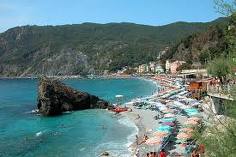Learn some Italian phrases for travelers who can go a long way to make your trip to Italy more enjoyable. Italy is an old landfill with a remarkably diverse population. The official language is, of course, Italian, but there are many dialects with its own distinctive flavor to this peninsula. The locals can tell the difference between a Pisan and exactly one Roman accent. Nevertheless, the Italian also has a rich background of idiomatic phrases, ranging from dialect to dialect, and region to region. Fortunately, all Italians are fluent in the official Italian dialect, which means that anyone who travels in this country will be able to learn simple phrases that will help them explore the country with ease.Why learn Italian?
The Italian people are, overall, very open to foreigners. Because tourism is such a great company, accustomed to travelers coming through. Tourists traveling to Italy, you'll find in most tourist towns, many Italians speak some basic English, which is useful as you shop local businesses or to use the train system. If your travels take you through small towns and villages could be more difficult to find an Italian who speaks English. However, if someone really wants to get into the Italian culture and experience in Italy, learn some Italian.
Even entry into service just a few phrases will get smiles and grateful shown by the locals. Nothing screams "uneducated tourist" like walk into a store and loudly proclaiming in English that you want coffee. Instead, say "Vorrei un caffe» per favore. "(I want a coffee, please.) Congratulations, you're in Italy!Italian pronunciation
Learning the correct pronunciation of a language is often necessary to be understood. The effort you put into speaking the language is welcomed by the locals. I still bear the tell-tale sounds of your own language, but all the good and the vowels will speak in a foreign language will be music to the ears of us all.
For the most part, the Italian pronunciation is very simple. Each line is heard clearly and crisply, each vowel is clean and untouched by the sounds that surround it. The Italians speak quickly and with a very light language. Do not expect to sound like an Italian first attempt, you get a lot of practice!
Use the guide below is a general introduction to the Italian pronunciation. There are many more nuances and differences between Italian and English pronunciation, but will make sure you understand.
The following consonants are pronounced very similarly to English consonants:
And these are rarely shown in Italian and is in fact not from the language:
* The letter C before the vowels A, O and U, pronounced like a K. However, when appearing before E and I is pronounced like English CH. But be careful! In Italian words, a combination of CH sounds like a K!
* The letter G before A, O or U, pronounced as "good." Before the E and I sound more like G for "beige".
* Gli sounds like «li» in "millions" or "onion".
The Italian * H is always silent.
* S and Z is sometimes hard or soft, depending on their location. Z may sound like "ts" or "DS", while S may sound like "z".
* Double consonants are pronounced in Italian twice (or held longer). This may be a critical distinction between words and is one of the biggest causes of confusion on the English-speaking tourists. Practice!
* Focus on the Italian word generally falls on the penultimate syllable.
Italian phrases for travelers: Vowels
Italian vowels are much simpler than English vowels and always makes the same sounds.
* One always like his father.
* E always as in hey, but cut smaller.
* I as the sound into heat.
* O is rounded and open as "no."
* U sounds like "oo" in "hiss."










No comments:
Post a Comment